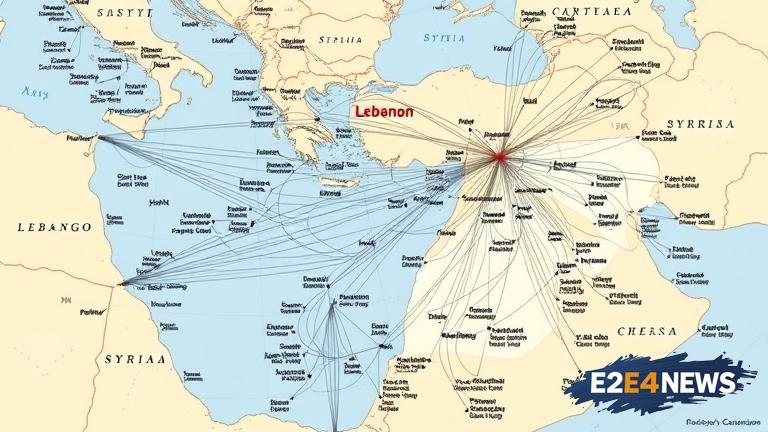The United States has a long and complex history of involvement in Lebanon and Syria, with a mix of diplomatic, economic, and military interests. The US has been a key player in the region, providing financial and military aid to Lebanon and supporting the Syrian opposition. However, the US has also been criticized for its role in the region, with some arguing that its actions have contributed to instability and conflict. In recent years, the US has increased its military presence in the region, with a focus on combating terrorist groups such as ISIS. The US has also provided significant financial aid to Lebanon, with a focus on supporting the country’s economy and military. Despite these efforts, the region remains volatile, with ongoing conflict in Syria and tensions between Lebanon and its neighbors. The US has also been involved in diplomatic efforts to resolve the conflict in Syria, including negotiations with Russia and other international partners. However, these efforts have been slow to yield results, and the conflict continues to pose a significant challenge to regional stability. The US has also been critical of Iran’s role in the region, with concerns about its support for militant groups and its influence over the Lebanese government. The US has imposed sanctions on Iran and its allies, including the Lebanese militant group Hezbollah. Despite these tensions, the US has also sought to maintain a dialogue with Iran, with a focus on finding a peaceful resolution to the conflict. The US has also been involved in efforts to support the Syrian people, including providing humanitarian aid and supporting the work of non-governmental organizations. However, the US has also been criticized for its handling of the refugee crisis, with some arguing that it has not done enough to support those displaced by the conflict. The US has also been involved in efforts to promote economic development in the region, including supporting the work of the World Bank and other international financial institutions. Overall, the US role in Lebanon and Syria is complex and multifaceted, with a mix of diplomatic, economic, and military interests. The US will likely continue to play a significant role in the region, with a focus on promoting stability and security. The US will also need to navigate the complex web of interests and alliances in the region, including its relationships with Iran, Russia, and other international partners. The US will need to balance its own interests with the needs and concerns of its allies and partners in the region, including Lebanon and the Syrian opposition. The US will also need to consider the long-term implications of its actions in the region, including the potential risks and benefits of its involvement. The US will need to be mindful of the potential for unintended consequences, including the risk of further instability and conflict. The US will also need to be prepared to adapt its approach as circumstances in the region evolve, including the potential for changes in the political and military landscape. The US will need to prioritize a flexible and responsive approach, one that takes into account the complex and dynamic nature of the region.
